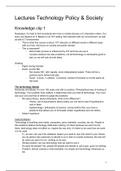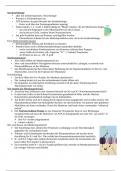College aantekeningen
All lecture notes Technology, Policy & Society EUR
- Instelling
- Erasmus Universiteit Rotterdam (EUR)
Notes for all knowledge clips / lectures of the course Technology, Policy & Society, BA3 course, by dr. Moody. For Public Administration and MISOC at Erasmus University Rotterdam.
[Meer zien]






